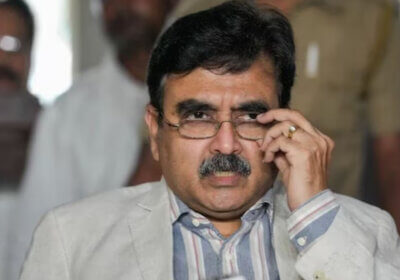A nation is nothing more than a large community which, like any other system, needs administration. At least 5,000 years ago, humanity established governments. It is ingrained in our culture and permeates our everyday lives. You may have seen the news about a new law, a new policy update, or other government-related debates on social media or in periodicals. However, what comes to mind when you hear the term “government”?
Do terms such as “politics,” “president,” “power,” and “rules” come to mind? It is essential to remember that defining government is the first step in studying any government system.
Democracy the Best Known Form of Govt
Significance of Government
The government refers to the authority that enacts or enforces laws that assure the safe and peaceful running of a nation for the benefit of its citizens, independent of the structure or institutions in existence, the group of persons in charge, or the technique used.
Why Democracy is Regarded as the Ideal Form of Government
“Democracy” is derived from the Greek words “demos” (people) and “kratia” (ruling by or government). Democracy means “government of the people.” Abraham Lincoln said, “Government of the people, by the people, for the people.”
In most cases, democracy is a type of governance in which citizens exercise power via elected officials, direct voting, or a mix of the two.
Winston Churchill famously said, “Democracy is the worst form of governance except for all those other systems that have been tried from time to time.” Despite its imperfections, democracy has consistently shown to be the best form of governance. In many Western nations, democracy is the backbone of human liberty and economic prosperity. The majority of prosperous countries in the world, including the United States, the United Kingdom, and Germany, adopted this style of government. The failures of its opposing systems, notably authoritarianism and tyranny, in different areas of the globe increase the desire for democracy and its triumphs in many nations.
The following arguments support the claim that democracy is the best form of governance.
Decentralisation of Power
Historically, it has been terrible to concentrate too much power in the hands of a single individual. In a democracy, no centralised authority can dictate the people’s rights and responsibilities. The public vote determines every decision, and the people possess the authority. This prevents the misuse of power and allows the people to keep their government responsible.
Advances Equality
Equality is one of the fundamental concepts of democracy. The democratic framework gives each vote equal weight during elections.
When a person registers for this procedure, they have the freedom to vote and voice their viewpoint without being inspected based on their socioeconomic level. Yes or no answers count as one, regardless of whether you are affluent or poor, own property or not, or express your gender in a certain manner.
Safeguarding People’s Rights and Interests
When people hold positions of power, all government systems are vulnerable to manipulation. Examples of mass population brutalization, extrajudicial murders, and other types of injustice are frequent under authoritarian regimes. However, in a democracy, such news is uncommon since mostly the people retain the authority.
In democracies, elected leaders cannot disregard the demands of the general populace. It compels them to reflect on the needs of each community so that everyone has an equal opportunity to attain their objectives. Consequently, the people’s rights and interests are protected and enabled following the governing laws of the nation.
It Demonstrates Legitimacy
Because voters decide who will be in charge and how policies are formulated, democracy provides an acceptable political system for every individual. A democratic government is legitimate, authentic, and acceptable since the people elect it in accordance with the law.
This is essential because it gives people a feeling of belonging and duty and the confidence to challenge unfavourable government choices via recalls and demonstrations.
Promotes a Reliable Decision-making Process
In a democracy, the decision-making process is rigorously examined and verified. When a bill is filed in the legislature, for instance, it must undergo significant discussion and public hearings before it becomes a bill and require executive approval before becoming law.
The courts can declare legislation null and invalid and without effect, even if it passes into law but is subsequently shown to be unlawful owing to procedural flaws.
Decreases Strife and Warfare
The greatest statistically significant element in lowering interstate and intrastate conflict is democracy. This is most likely because war, whatever its form, is politically unpopular because it costs human lives; therefore, democracies are forced to avoid it at all costs.
High Degrees of Freedom
In a democratic society, personal liberty is plentiful. People in democracies are generally free to act as they like, so long as they do not damage others or violate local laws. Consequently, individuals can freely express themselves via speech, cultural or religious beliefs, etc.
In dictatorships, on the other hand, freedom is severely constrained since rulers usually resist individual liberty out of fear of a popular uprising if individuals are too well-informed. The democratic frameworks allow the general populace to achieve any desired result. Consequently, prosperity and stability are encouraged everywhere.
Increases Civic Engagement
In a democracy, the people and their voices control the government. Therefore each individual can choose his or her destiny. Individuals are permitted to vote in accordance with their moral values. Every vote is an opportunity to express one’s distinctive views. Unless there is a significant moral objection to the outcome, the vote counts in a democracy, regardless of whether the majority hears that voice.
Provides a Seamless Transfer of power
Typically, in democratic nations, the transition from one political leader to the next is quite smooth and uncomplicated. This allows a nation to maintain its political and social stability.
On the other hand, other political regimes routinely kill or expel political leaders via revolutions, resulting in a vacuum of political power and high levels of insecurity in the particular nation.
Flexible Governmental System
Democracy is a dynamic process that changes and develops, and it may take on a variety of forms. The strength of democracy is its flexibility to evolve. As a result of its adaptability, it assists the government in adjusting to shifting opinions.

Democracy























Leave a Reply